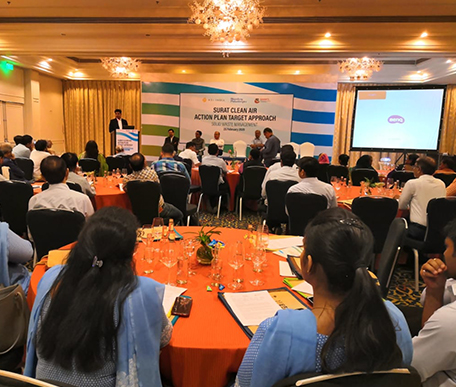Clean Air for All
Air pollution is the leading environmental health risk globally with the World Health Organization (WHO) estimating that air pollution is responsible for a staggering 7 million premature deaths worldwide. In India, nearly 77% of India’s population is regularly exposed to air pollution levels above the National Ambient Air Quality Standards safe limits.
‘Dirty air’ is often not visible and particulate matter—often referred by size in micrometers, PM10, PM2.5 and PM1—can lead to cardiac distress and diseases such as asthma and cancer with smaller particles entering deeper into the lungs. Worsening air pollution not only impacts human health, it also reduces crop yields, alters rain fall patterns and affects climate change.
The sources and causes of air pollution vary by place, across seasons and over time posing a daunting challenge to human development. But this problem can be resolved by shifting the conversation from grievances to determining the cause of pollution and how best it ought to be tackle for the benefits of reducing air pollution far outweigh the costs of deployment.
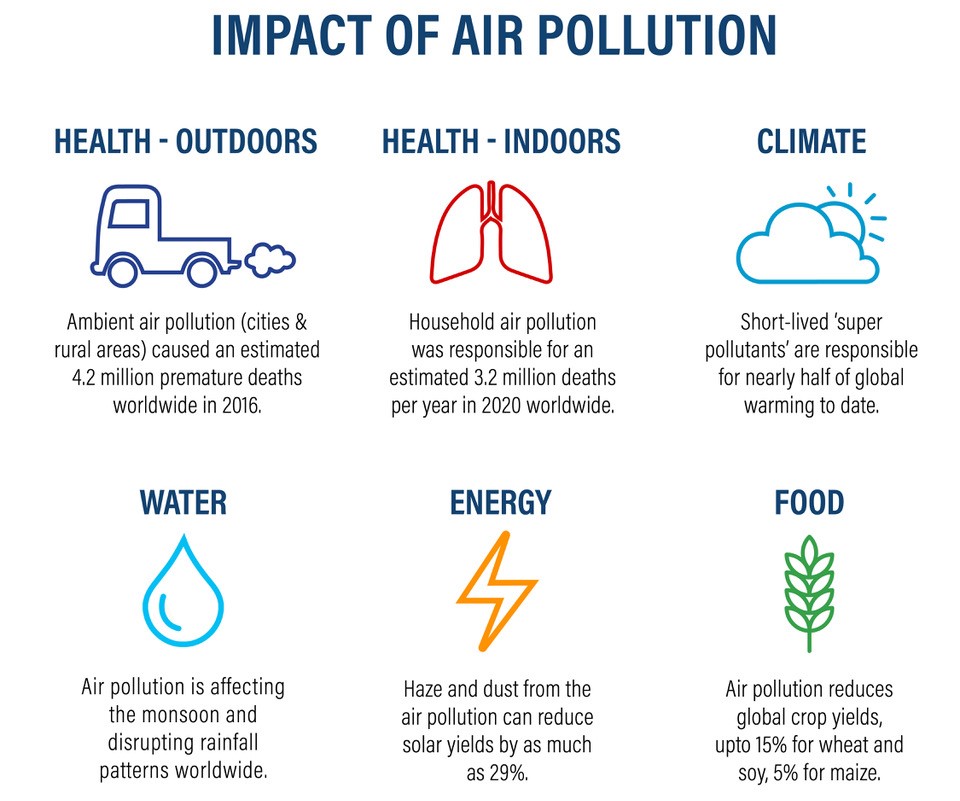
Accelerator for Clean Air Actions (ACAAS)
Many Indian cities are facing severe air pollution with detrimental effects on human health. The National Clean Air Programme (NCAP) has spurred 131 non-attainment cities toward reducing and mitigating air pollution through their respective clean air action plans. However, effective implementation of these action plans requires cities to advance their technical capabilities, improve coordination among agencies, strengthen their policy frameworks, encourage greater citizen participation, better utilize funds, and identify and scale suitable pilots. The Accelerator for Clean Air Actions (ACAAS) will provide technical support to 10 Indian cities to prepare and implement solutions towards improving air quality. The program will help cities to develop local capacities in data-based understanding, plan strengthening, preparation of solutions, engaging stakeholders to build consensus for solutions, project implementation, and long-term policy changes.
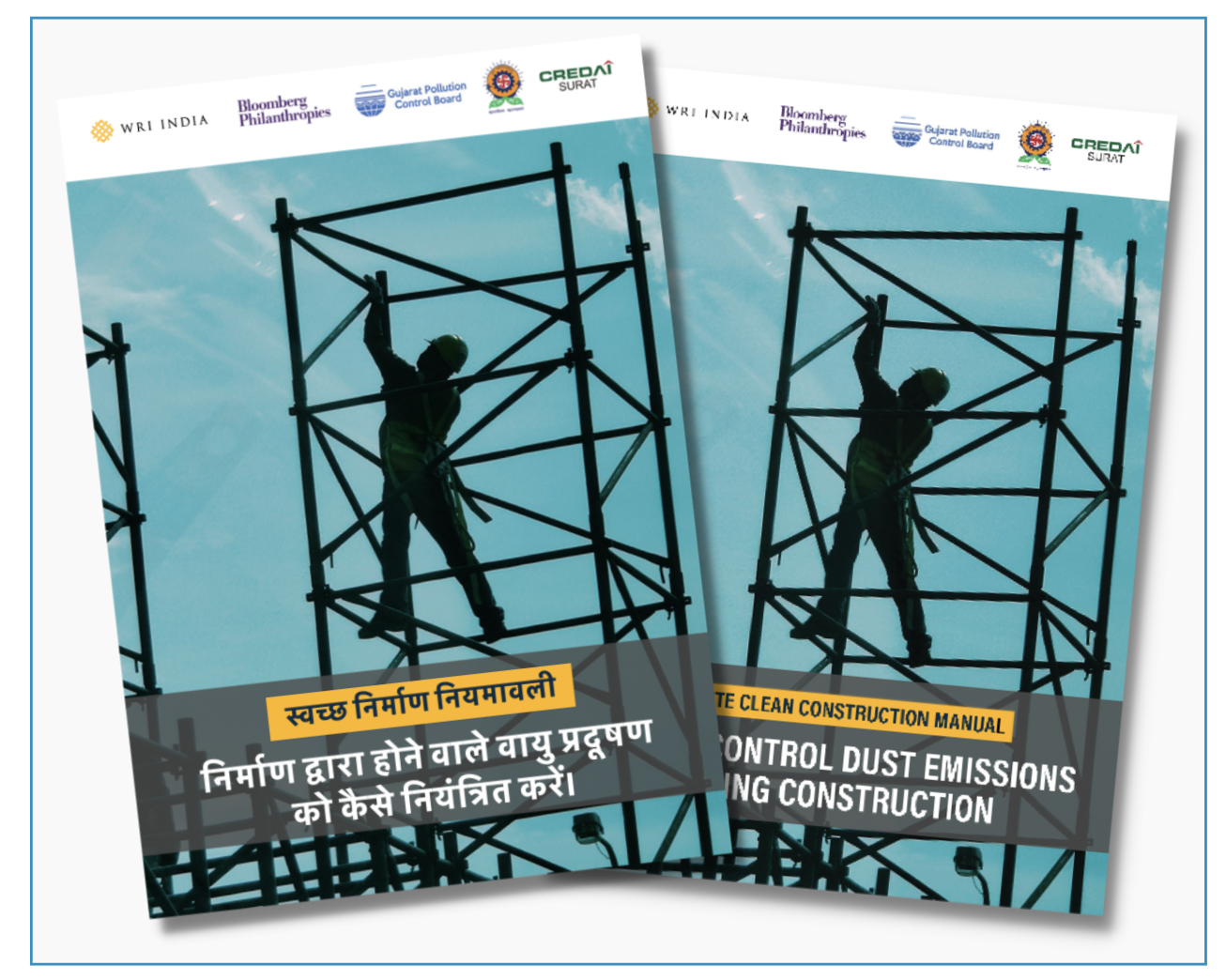
Onsite Clean Construction Manual Launch and Capacity Building Programme
As per the source apportionment study for Surat city, construction, along with road dust, contributes to 25-38% and 33-59% of the total PM2.5 and PM10, respectively, in the city.
WRI India in collaboration with Surat Municipal Corporation (SMC), CREDAI, and Gujarat Pollution Control Board (GPCB) has released an ‘Onsite Clean Construction Manual’, developed in Hindi and English, that showcases dust emission mitigation measures in a clear, visual form for the easy understanding of engineers, supervisors and workers at construction sites. While the manual has been developed for Surat city, it can easily be extended to other geographies as well,
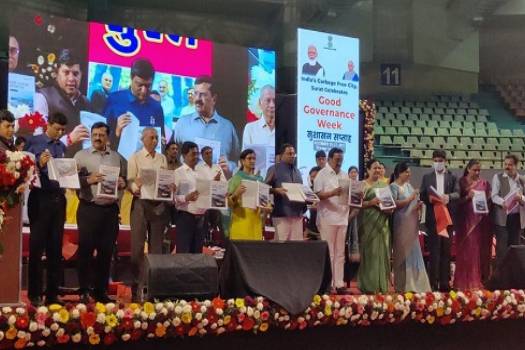
Surat Clean Air Action Plan
The Surat Clean Air Action Plan (SCAP), developed by WRI India in collaboration with Surat Municipal Corporation (SMC) and the Gujarat Pollution Control Board (GPCB) and supported by Bloomberg Philanthropies and Shakti Sustainable Energy Foundation (SSEF), offers technical interventions and suggests mitigation actions to strengthen institutional road maps.
- Serves as a ‘roadmap' to achieve cleaner air in the SMC area and recommends cost-effective interventions to reduce emissions from identified air pollution sources
- Offers a detailed assessment of air pollution source characteristics evaluated by an emissions inventory and a source apportionment study (done by TERI) coupled with inputs from stakeholders and local/regional policymakers.
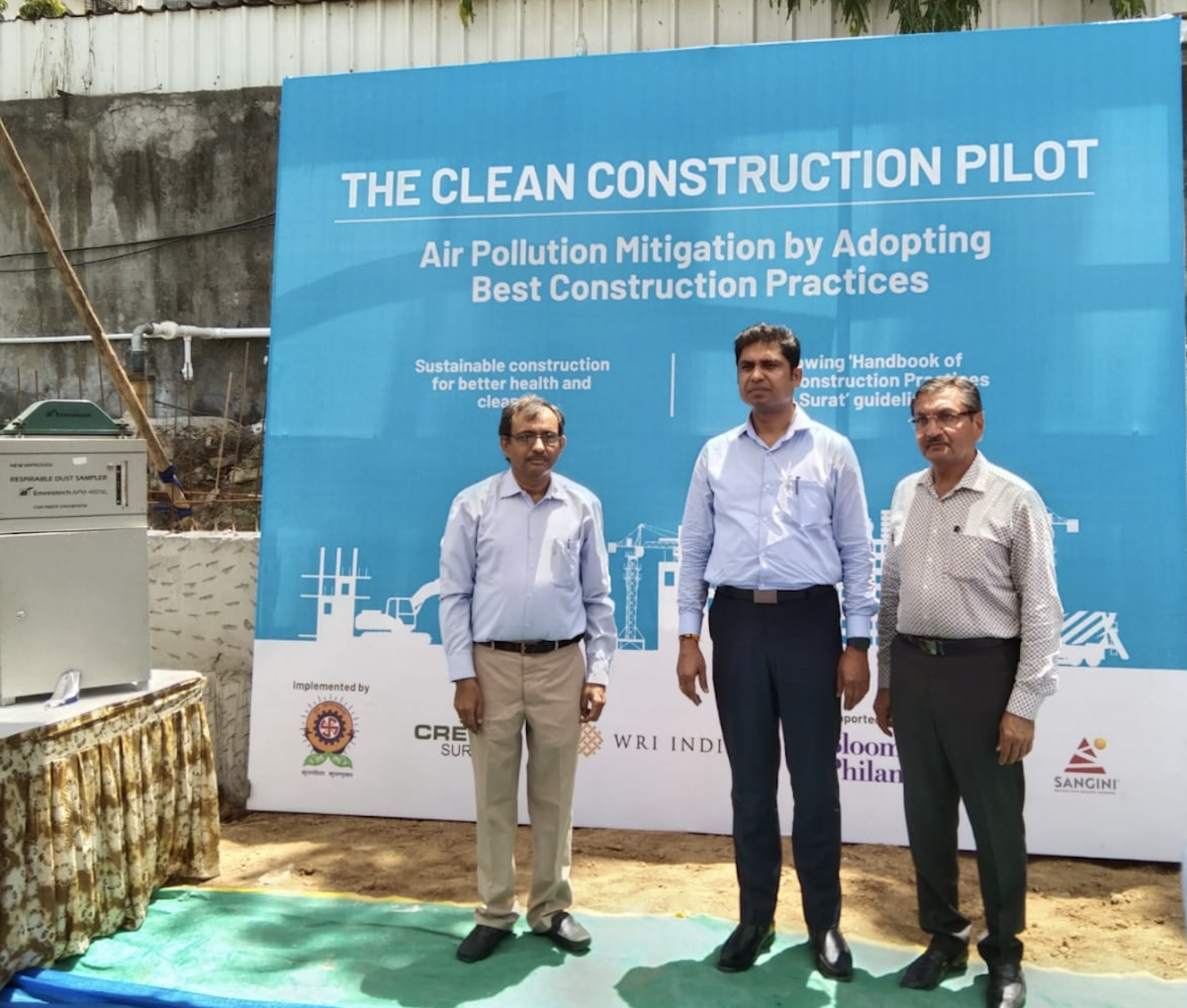
Clean Construction Pilot
The 'Handbook of Clean Construction Practices' created by WRI India in partnership with the Gujarat Pollution Control Board, Surat Municipal Corporation, CREDAI, and Bloomberg Philanthropies, offers guidelines, mitigation measures and best practices to lower air pollution emissions from on-site construction activities.
- Sangini Skyteria (Vesu, Surat) has undertaken a pilot project to reduce air pollution at their site.
- All mitigation approaches, as laid out in the Handbook, will be incorporated at the case construction site and the impact will be examined against a control construction site (without mitigation measures).
- This study will serve as a new standard for future building projects by quantifying clean construction processes and ensuring a data-driven plan for on-site dust control.
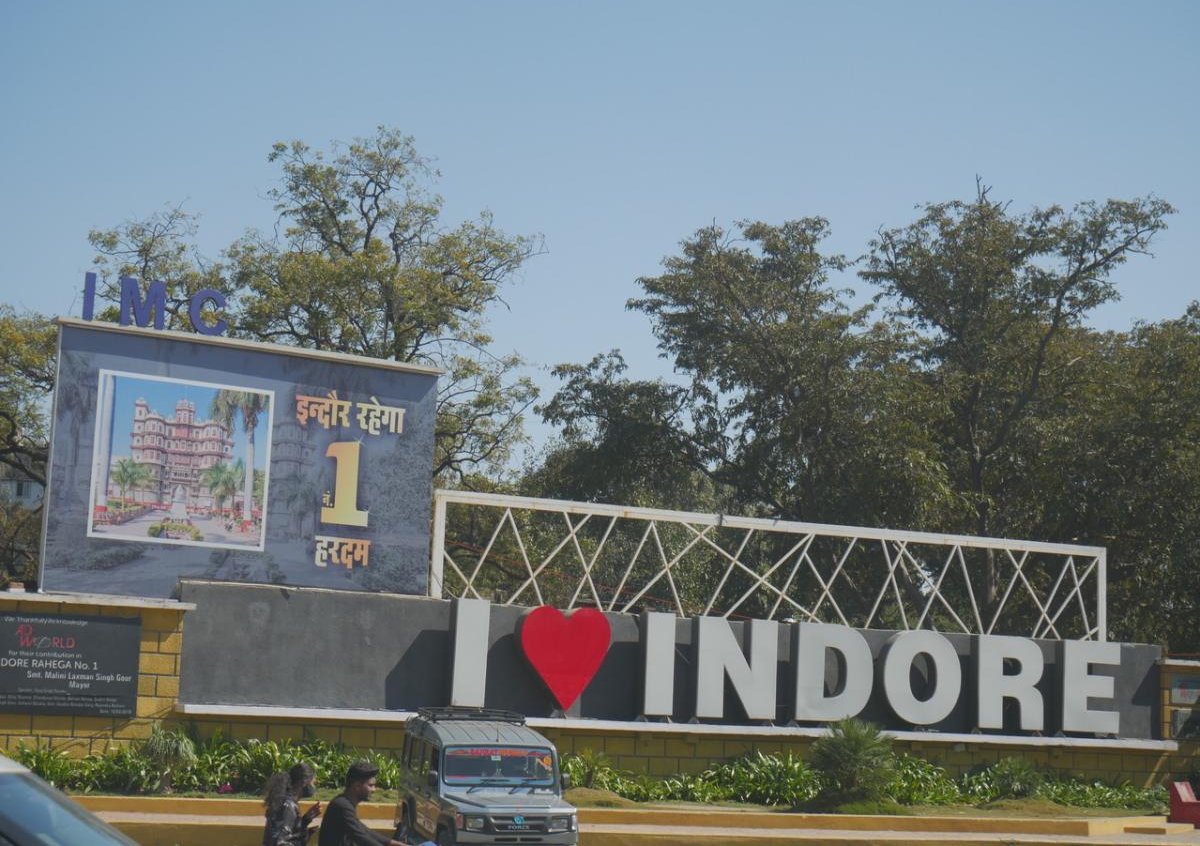
Clean Air Catalyst
World Resources Institute (WRI), the Environmental Defense Fund, and the U.S. Agency for International Development (USAID) established Clean Air Catalyst to help cities reduce air pollution by advancing solutions that safeguard health, foster equitable prosperity, and address the climate crisis. The pilot is currently underway in Indore city, Madhya Pradesh and Jakarta, Indonesia.
Clean Air Catalyst is currently working with Indore Municipal Corporation and Madhya Pradesh Pollution Control Board to mitigate air pollution and related issues. Local and national air quality specialists, domain and sector-specific professionals from WRI Global and WRI India, and community stakeholders are leading the efforts.

